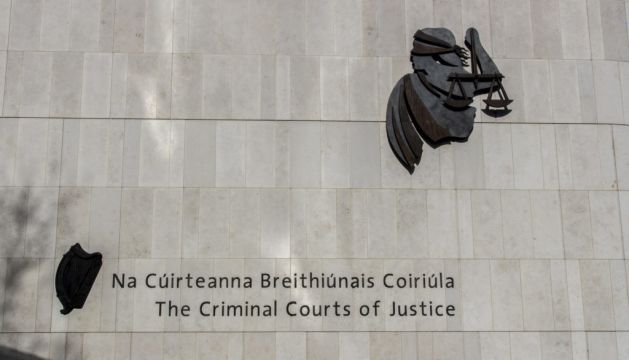Lawyers for two of the men accused of taking part in the alleged gang rape of a teenage girl have told a jury that their clients believed the girl was consenting to sexual activity.
In the early hours of the morning of December 27th, 2016 in a town in the midlands the then 17-year-old girl got into a car with five men, a decision she has told the jury she now believes was “very stupid”.
The defendants each allegedly sexually assaulted her as the car was driven out of the town. The car was driven to a remote location nearby and three of the defendants, and the fifth man who is not on trial, allegedly raped her at this location one after another.
The jury has heard that two of the defendants were later dropped off at a house back in the town and the car was driven to another location. The woman has said that she asked to be let out of the car but was ignored and that one man raped her for the second time at the same time as a fourth man forced his penis into her mouth.
The defendants, who were aged between 17 and 19 at the time, deny all the charges. Neither they nor the complainant can be identified in accordance with the 1981 Rape Act.
Closing speeches
Three weeks of evidence ended on Thursday morning and closing speeches concluded on Friday afternoon before Justice Tara Burns and a jury. Justice Burns will begin charging the jury on Monday morning.
Closing his case for the second defendant, Seamus Clarke SC told the jury that they had to consider how the conflict of how the complainant could emphatically say she didn't consent and how his client could emphatically say he was not aware of this.
He said much of that conflict came down to how people communicate and “if we communicate our inner feelings externally to those around us”.
“It’s not just about words, it's about actions, a touch or a glance - something that conveys if you are comfortable,” he said. He said the jury had to consider whether the men really understood if the woman was not consenting.
His client is charged with sexually assaulting the girl on the car journey to the remote location by touching her breast. He is also charged with sexually assaulting her on the later journey to a second location back at the town, falsely imprisoning her in the car at this location and orally raping her in the car while another defendant raped her.
He was also charged with raping her at the remote location, but Justice Burns has directed a verdict of not guilty on this count where the complainant told gardaí she was “almost sure” there was not a fifth person who raped her there.
Issue of consent
Mr Clarke said his client's position is that he believed the woman was consenting to the first sexual activity. Mr Clarke said that his client contended that the alleged oral rape at the second location didn't take place.
He said his client also contends that the woman was free to leave the car at all times and that he didn't restrict her liberty. The woman has said she was blocked on both sides of the back seat.
Mr Clarke asked the jury to consider if the woman had “an internal view that she could continue to convince them that she is consenting, but it didn't manifest itself” to them and that they therefore didn't see any “red flag”.
He asked jurors to consider was there any reason to doubt the prosecution case that his client knew there was no consent or was reckless as to whether there was consent.
“Could it be reasonably possible that he believed there was consent?” he said.
Hugh Hartnett SC told the jury that it is his client's case that he did not have penetrative sex with the girl and did not ejaculate in the car. His client is accused of sexually assaulting her in the moving car by touching her genital area and by forcing her to masturbate him.
His client is also charged with sexually assaulting and raping the girl in the parked car at the remote location. He said his client's case is that he thought she was consenting when he touched her in the parked car and was grinding up against her.
The accused's account is that he then got a feeling that it was wrong and that she may not be consenting, so he stopped and got out of the car, having not had penetrative sex or ejaculated.
Mr Hartnett said that the DNA evidence supports his client's case. He said DNA analysis did not provide any evidence of the presence of his client's semen on his client's underwear, on the car seats or on the girl's clothing.
He said that this evidence casts doubt on admissions made by his client to gardaí.
He said the allegation of rape against his client is based on evidence in which the woman says “its all a bit of blur” and told jurors they shouldn't be happy to convict someone on that evidence.
He said the evidence that after the alleged rapes the woman, who had lost her mobile phone earlier before meeting the men, got annoyed about wanting to borrow a phone and “snapped at” one of the men struck him as strange.
If you have been affected by any of the issues raised in this article, you can call the national 24-hour Rape Crisis Helpline at 1800 77 8888, access text service and webchat options at drcc.ie/services/helpline/, or visit Rape Crisis Help.
In the case of an emergency, always dial 999/112.







